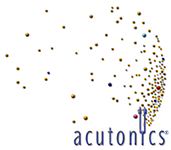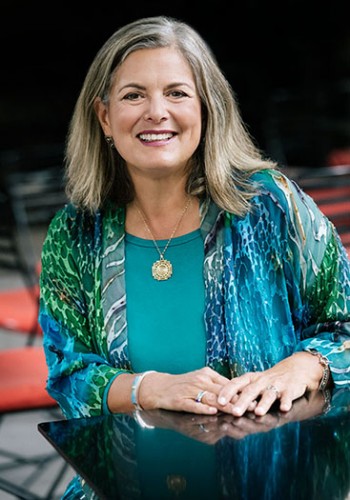“The Heart recognizes the unity of everything, that there is purpose in everything and that all experiences are vehicles for transformation. The Heart is said to be the ‘voice of sacredness’ that helps us to connect with our true humanity.”—Paul & Jude Ponton
As I read these words, in this month’s offering from Paul and Jude, they struck a powerful chord for me as I grapple with finding the words to address the systems of injustice and systemic racism that have pervaded the US for hundreds of years. I recognize how critical it is that I truly listen to the experiences and powerful voices of the Black Lives Matter movement, experiences that, as a white person, are not my own, and can never be felt at the deep cellular level that is endemic to the black and brown lived experience.
I have watched; I have listened; I have tried to find my voice as a community leader, and yet I have been quiet. I feel that this is a time for deep listening and learning. As the global pandemic continues to rise, disproportionately impacting black and brown communities, we witness the impact of oppression, poverty and a failing health care system, in this country. I have a range of emotions. I am angry with myself: I hold a belief that as a 67-year old Jewish woman who has been to many protests over the years and fought for social injustice, women’s rights, black rights, gay rights, and environmental issues, I still have so much to learn. I can never fully understand what it is to live in a black or brown body, to experience police terrorism, oppression, and slavery, and to live with daily fear for your beloved child.
“Mom, I’m afraid every time I walk by - even an MIT campus police - that they will stop me, they will question me, and it will escalate beyond my ability to control it.” —DJ
My cousin, Jessica Best, recently shared these words about her son DJ with our family. “My beautiful, caring, compassionate, intelligent, bi-racial son, who attends MIT, carries a burden of fear, that even the MIT campus police could at any moment make him an enemy. This is shameful and he deserves better. POC deserve better. It breaks my heart.” She has lived in fear, watching her son transform from a wide-eyed, big-smile, innocent little boy to a 6’3” 230lb black man. “Fear gripped my heart, chest, and stomach many nights and days. I had talks with him constantly about how to conduct himself out of fear for his life...don’t sag your pants, don’t wear your hat backwards, if you’re pull over by the police make sure your hands are on 10 and 2 and don’t make any sudden movements. You’re not allowed to ask a girl out unless she’s asked her parents (and parents have said no because he’s black). It breaks my heart that there will be people in this world who won’t know or care that he was top of his class, that he goes to MIT, that he’s volunteered countless hours, that he’s kind and compassionate and cares about humanity...all some people will see is the color of his skin.”
This is just one example from my own family, and I am sure that many of us have stories to share or deep feelings that are hard to express. But the death of George Floyd has increased the visibility of a global movement, and despite all of the prior deaths, murders, and incidents of police violence— something has stirred in our hearts that calls us to ask important questions. What can I do now? How can I help? What does it mean to deeply listen? How do we change something so systemic and ingrained at a cellular level?
As practitioners and teachers of Acutonics, what tools might we use to address the trauma being experienced on a global scale? Where do we begin amidst the trauma of a pandemic, the trauma of racism, and the feelings of pain, loss, and compassion where we so desperately want to make a difference?
Senior faculty member Joanie Solaini recently shared a podcast with Resmaa Menakem, a body-centered therapist and trauma specialist, interviewed by Krista Tippett on the program On Being. The podcast led me to Menakem’s powerful book on deep healing of racialized trauma. He writes:
- Trauma is routinely passed on from person to person and generation to generation — through genetics, culture, family structures, and the biochemistry of the egg, sperm and womb. Trauma is literally in our blood.
- Most African Americans know trauma intimately. But different kinds of racialized trauma also live and breathe in the bodies of most white Americans, as well as most law enforcement professionals.
- All of us need to metabolize the trauma, work through it, and grow up out of it with our bodies, not just our thinking brains. Only in this way will we heal at last, both individually and collectively.
Read more in his powerful book:
Resmaa Menakem (2017), My Grandmother’s Hands: Racialized Trauma and the Pathway to Mending our Hearts and Bodies
Other books that I have ordered and plan to read:
Michelle Alexander (2010), The New Jim Crow: Mass Incarceration in the Age of Colorblindness
Mahzarin R. Banji and Anthony G. Greenwald (2016), Blindspot: Hidden Biases of Good People
Ibraham X Kendi (2019), How to be an Antiracist
Ibraham X Kendi (2017), Stamped from the Beginning: The Definitive History of Racist Ideas in America
I’d like to hear from you. How can we respond as a community, and address the deep trauma and loss of life that is being experienced around the globe? How do we open our hearts to a new level of unity, compassion and change? What tools might we use and which of the Eight extraordinary vessels will deeply aid the process of unwinding trauma at a deep cellular level.
Ellen F. Franklin and Donna Carey will be offering the elective Unwinding Trauma: Acutonics®, The Eight Extraordinary Vessels and Fibonacci online August 20-21, 2020. To register contact sande@acutonics.com. Questions about the class email ellen@acutonics.com.

